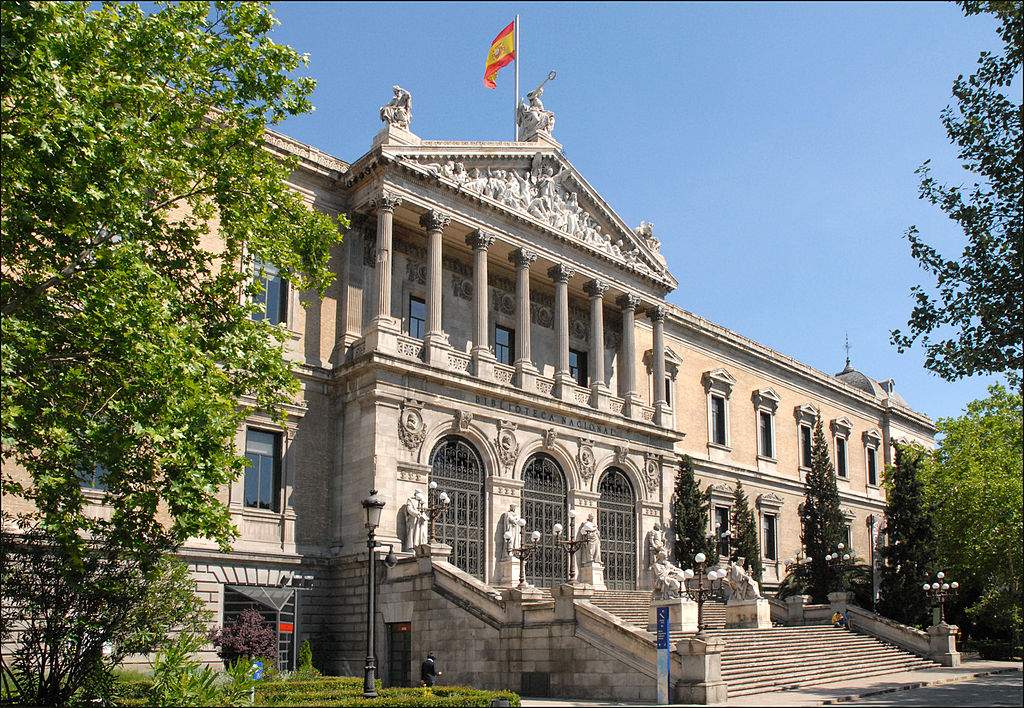In Spain, video games could become part of the cultural heritage and make their way into the Biblioteca Nacional de España (BNE): in fact, Spain’s top library institution, which has a centuries-old history essenfo was founded in 1712 by King Philip V, has sent, at the hands of its director Ana Santos, a reform proposal to the undersecretary of culture, Javier García. The reform would amend the terms of the Ley de Depósito Legal, the law that regulates the types of documents that can become part of the “bibliographic, audio, visual, audiovisual, and digital heritage of Spanish culture”: Santos, in particular, asks that the set could be extended to include video games, websites, election posters, and bookmarks.
The announcement was also made via tweet: “we have proposed,” reads the BNE’s official account, “a reform of the norm that regulates legal deposit so that it covers the new formats of digital creation, especially video games.” And again, reads another tweet, “in this proposal we gather the rules of the preservation of video games, but also other content: websites, election posters, bookmarks, and others.”
In Spain after all, there is great attention for the video game sector: Gamelab, one of the most important European congresses on the subject, is held in Barcelona, and at this year’s edition the minister of culture, José Guirao, who attended, said that video games represent “the cultural industry with the highest potential, and it is strategic for this ministry.” Not only that, on the occasion, Guirao had also announced a €2.5 million program to support the sector.
Santos told El País newspaper that “video games will be assets of cultural interest in the future because they have a very important cultural value as artistic creations.” However, in order for video games to actually become cultural property, the law will have to be rewritten, and for this the Biblioteca Nacional is already enlisting the support of industry players, starting with the Asociación Española de Videojuegos. And there is another problem: Santos has in fact stated that the Biblioteca Nacional has insufficient means to preserve the digital heritage. New professional figures will also be needed (who will be called “web conservators” and are already being trained in Spain), who will be in charge of supporting the institutions in choosing what to preserve. The draft of the new law will then also take into account the role of the Autonomous Communities (roughly corresponding to our regions): they will decide which websites will be preserved, together with the BNE. The goal, Santos again lets us know, is “to achieve the best representativeness of the Internet world.”
The BNE already has an important digital heritage: in 2018 alone, as many as 6.2 million digital documents were downloaded from its website. A heritage that could grow, not least because the reform proposal includes another measure: the obligation for publishers who deposit books with the BNE to also deposit a digital copy. Spain, in this field, is thus showing itself to be a country capable of looking to the future.
Pictured: the Biblioteca Nacional de España. Ph. Credit Jean-Pierre Dalbéra
 |
| Spain, video games could become cultural property. This is proposed by the Biblioteca Nacional |
Warning: the translation into English of the original Italian article was created using automatic tools. We undertake to review all articles, but we do not guarantee the total absence of inaccuracies in the translation due to the program. You can find the original by clicking on the ITA button. If you find any mistake,please contact us.